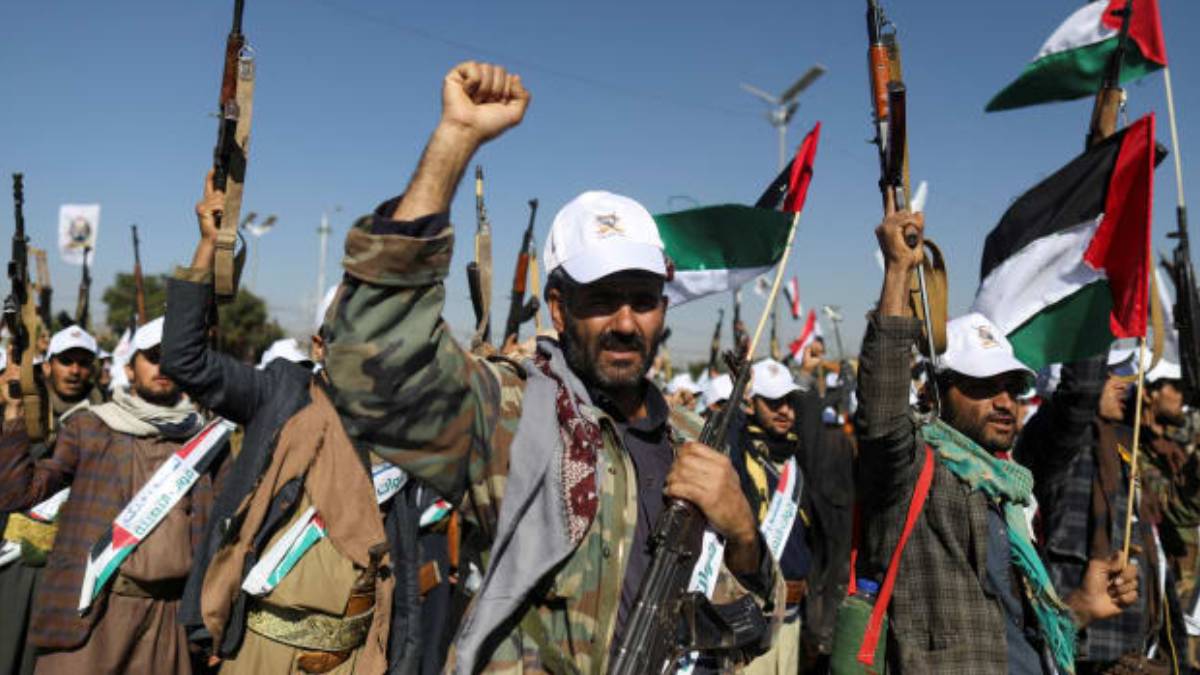Since the start of the war between Israel and Hamas, Houthi rebels have been attacking the commercial ships in the Red Sea, as way of displaying their support towards Palestine. They have vowed to not stop until Israel “stops its crimes” in Gaza. But who are the Houthis?
The Houthi rebel group, also known as Ansar Allah, has emerged as a significant force in Yemen’s complex political landscape. Their origins trace back to the Zaidi Shia Muslim minority in northern Yemen, where they gained prominence in the early 2000s under the leadership of Hussein Badreddin al-Houthi.
The movement began as a religious and political revivalist group seeking greater autonomy and an end to discrimination against Zaidis in Yemen. The Houthis’ grievances were rooted in socio-economic disparities, marginalization, and political exclusion faced by their community.
Their confrontations with the Yemeni government, led by President Ali Abdullah Saleh at the time, escalated into armed conflicts. Al-Houthi’s death in 2004 in a clash with Yemeni forces further fueled the movement’s determination to resist what they saw as oppression by the central government.
The Houthis’ ideology combines Zaidi Shia beliefs with a populist message of social justice and opposition to foreign influence, particularly that of Saudi Arabia and the United States. Over time, their movement gained traction among disenchanted Yemenis disillusioned with government corruption and perceived injustice.
The group’s military capabilities grew, allowing them to seize control of Yemen’s capital, Sana’a, in 2014, and subsequently expand their territorial control, including strategic areas in the country. This triggered a response from a Saudi-led coalition in 2015, launching a military intervention in support of the internationally recognized Yemeni government. The conflict has since caused one of the world’s most severe humanitarian crises, with widespread famine, disease, and displacement affecting millions of Yemenis.
The Houthis’ military strategy has been marked by guerrilla warfare tactics, including drone and missile attacks on Saudi Arabia and targeting international shipping in the Red Sea, drawing widespread condemnation and accusations of human rights violations.
Their governance in areas under their control has been met with mixed reactions. While some locals support their rule, others criticize their authoritarian practices and alleged human rights abuses.
The Houthi movement remains a central player in Yemen’s intricate political landscape, with their control over key regions and their ability to withstand military pressure from external forces. Efforts to reach a lasting peace in Yemen continue, but the complex web of interests involving local, regional, and international actors makes it a daunting challenge.
Understanding the Houthi rebel group involves delving into Yemen’s intricate history, societal divisions, and the broader geopolitical dynamics that have perpetuated one of the world’s most devastating conflicts.


